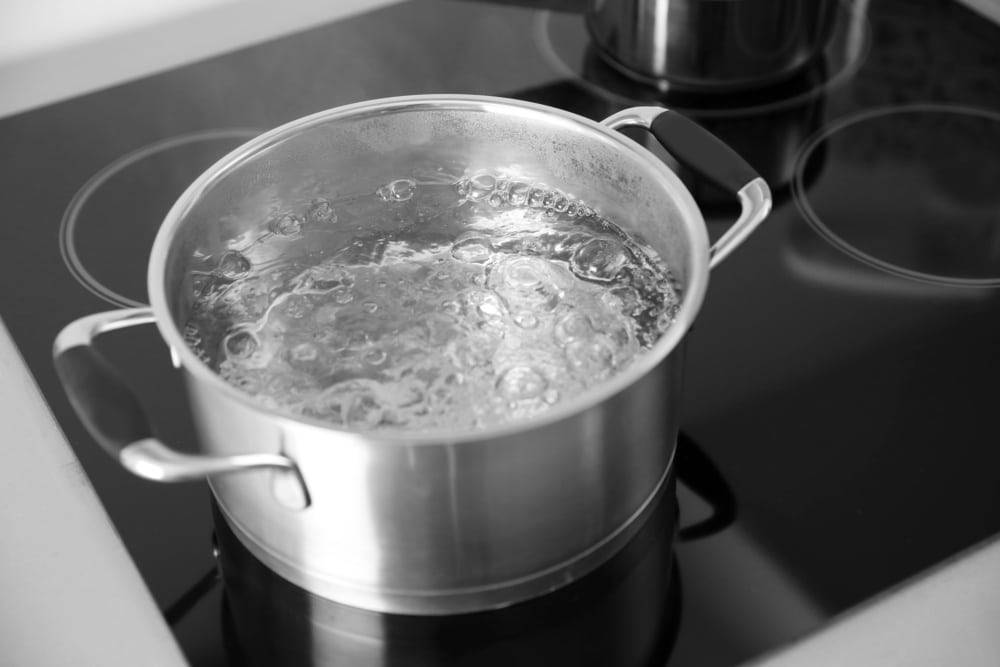Microplastic Removal: The Power of Boiling Water
Recent research sheds light on a remarkably simple yet effective strategy for reducing microplastic contamination in drinking water. By boiling water, individuals can eliminate up to 90% of microplastics. This offers an accessible method to mitigate exposure to these ubiquitous environmental pollutants.
A Pervasive Environmental Threat
Microplastics, defined as plastic particles smaller than 5mm, have infiltrated nearly every aspect of our environment. This includes the most secluded parts of human bodies. Recent research has found microplastics in human heart tissues showcasing the extensive reach of these pollutants. This discovery highlights the alarming reality that microplastics can accumulate in organs that are not directly exposed to external environmental sources. It suggests that these particles can find their way into the human body through various indirect exposures, including the cardiovascular system.
One study conducted involved analysing heart tissue samples from individuals undergoing cardiac surgery. The study revealed the presence of microplastic particles ranging from 20 to 500 micrometers in width. These particles consisted of several types of plastics, including polyethylene terephthalate (PET), polyvinyl chloride (PVC), and poly(methyl methacrylate) (PMMA), highlighting the diversity of microplastic pollution within the body. The presence of microplastics in blood samples before and after surgery further indicates that surgical procedures may introduce additional microplastic exposure. This emphasises the need for further research to understand the implications of microplastics on the cardiovascular system and overall human health.
The Efficacy of Boiling Water in Microplastic Removal
The principle that heating water to high temperatures can alter the physical state of contaminants, thus making them easier to filter out, underlies the process of boiling water to eliminate microplastics. Specifically, boiling water that contains high levels of minerals, such as calcium or magnesium (hard water), leads to the formation of calcium carbonate precipitates. These precipitates capture microplastic particles, thereby enabling their removal from the water through simple filtration methods after boiling.
A pivotal study published in Environmental Science & Technology Letters demonstrated that boiling mineral-rich water for just five minutes can significantly reduce the concentration of nano- and microplastics. The research involved contaminating tap water samples with varying levels of microplastics. This was followed by boiling and subsequent filtration. The results were striking, showing that nearly 90% of microplastics could be removed from hard water samples. Softer water samples also showed a noticeable reduction in microplastic content.
This finding is particularly relevant in the context of global microplastic pollution. This offers low-tech and cost-effective solution for individuals, especially in regions where advanced water purification systems are not readily accessible.
Implications for Public Health and Environmental Sustainability
The simplicity of boiling water as a method for reducing microplastic exposure holds significant implications for public health. There is increasing recognition of microplastics as a pervasive environmental pollutant. Emerging evidence links microplastic exposure to potential health risks, such as oxidative stress and inflammation, identifying accessible methods for reducing personal exposure is paramount.
Moreover, this method highlights the importance of addressing the broader issue of plastic pollution. Boiling water can provide a means for individuals to mitigate their direct exposure. However, it also highlights the need for comprehensive strategies to reduce plastic waste and pollution at the source. Efforts to minimise plastic use, improve waste management practices, and develop biodegradable alternatives are essential steps towards reducing the overall burden of microplastic pollution.
A Step Forward in the Fight Against Microplastics
The research on boiling water as a technique for microplastic removal represents a promising development in the ongoing effort to understand and mitigate the impact of microplastics on the environment and human health. By providing a practical and accessible solution, this method offers individuals a way to take proactive steps towards reducing their microplastic exposure, while also highlighting the critical need for broader environmental stewardship and sustainable practices.
As the scientific community continues to explore the effects of microplastics and develop methods for their removal, it is clear that collective action and innovation are key to addressing this complex environmental challenge.
References
- Yu, Z., Wang, J. J., Liu, L. Y., Li, Z., & Zeng, E. Y. (2024, February 28). Drinking Boiled Tap Water Reduces Human Intake of Nanoplastics and Microplastics. Environmental Science & Technology Letters. https://doi.org/10.1021/acs.estlett.4c00081
- Microplastics found in human heart tissues, both before and after surgical procedures – American Chemical Society. (n.d.). American Chemical Society. https://www.acs.org/pressroom/presspacs/2023/august/microplastics-found-in-human-heart-tissues-before-and-after-surgical-procedures.html

